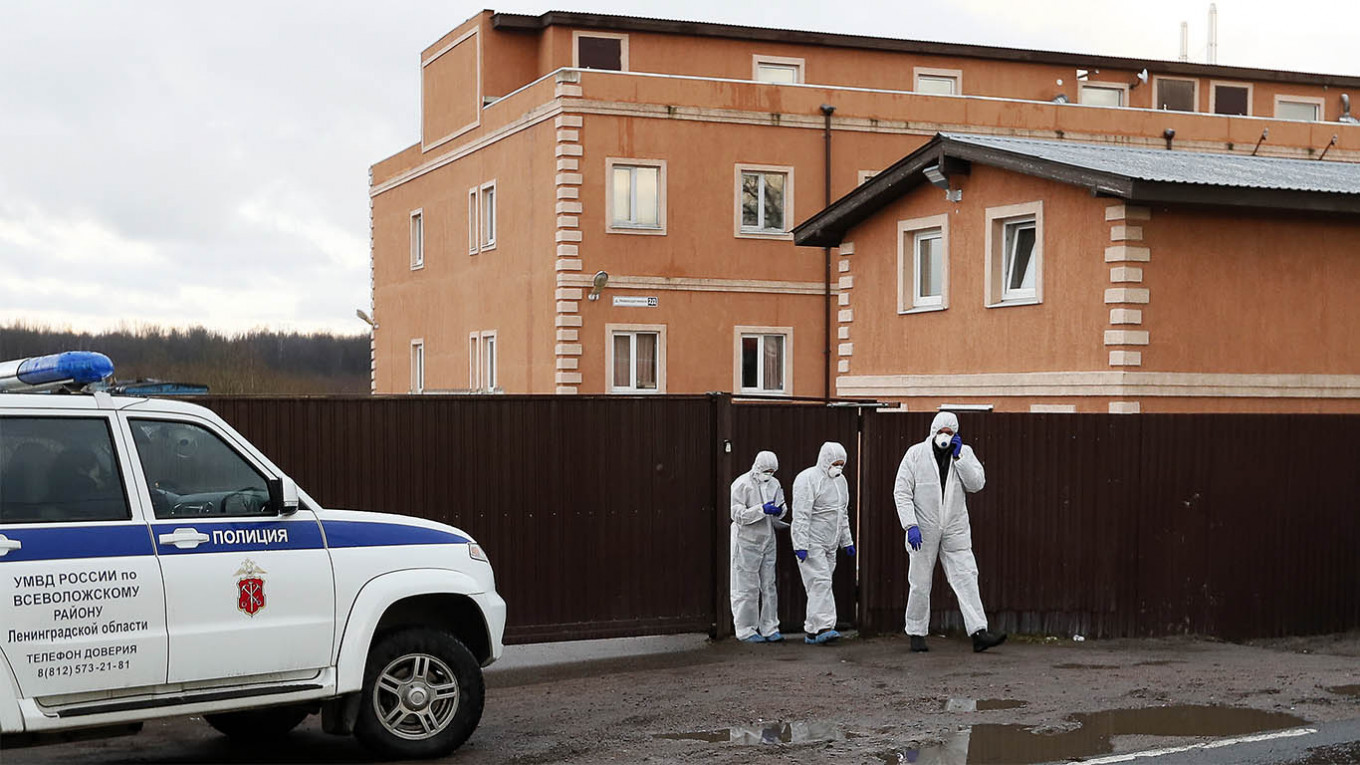One-third of all coronavirus infections in a northwestern Russian region are concentrated in a crowded hostel that houses migrant workers involved in construction at an IKEA-owned shopping mall, local media reported Wednesday.
The Leningrad region, which surrounds Russia’s second-largest city of St. Petersburg, has reported 330 Covid-19 cases since the start of the outbreak. Over a four-day period, 123 mostly mild coronavirus cases have been reported in the hostel in the village of Novosergiyevka east of St. Petersburg.
The hostel is rented by a Turkish construction contractor whose migrants are involved in “either reconstructing or cleaning” the nearby IKEA-owned shopping center, the local 47news.ru website reported.
“The shopping center’s employees did not have direct contact with the contractor’s sick workers,” the outlet quoted IKEA as saying.
Regional authorities described the hostel as “illegal.”
"We received information that on April 11 employees of Esta Construction, a contracting organization that carries out construction work on the property of the MEGA Dybenko [shopping center], had symptoms of SARS, which was later confirmed to be coronavirus. The contractor immediately stopped construction work at the facility, and in accordance with the authorities' instructions, the workers were quarantined and the premises were completely disinfected,” a spokesperson for the shopping center told The Moscow Times.
Health officials set up a field hospital on hostel grounds to isolate the infected and prepare for a possible outbreak among its estimated 485 residents.
“We decided not to hospitalize them because there’s around 500 people there,” the local Bumaga news website quoted the Leningrad region’s press service as saying. “Plus, most cases are mild and don’t require hospitalization.”
Authorities have opened a criminal probe into health violations leading to mass illness, a crime punishable by up to two years in prison. They did not name the suspects.
The Leningrad region’s governor, Alexander Drozdenko, also ordered an inspection into all hostels following the mass infection at Novosergiyevka.
St. Petersburg, a city of 5.5 million, is Russia’s third hardest-hit locale with 1,083 out of 27,938 countrywide coronavirus infections and seven reported deaths.
This story has been updated to clarify that the contractors are not IKEA employees and to add the shopping center's statement.
A Message from The Moscow Times:
Dear readers,
We are facing unprecedented challenges. Russia's Prosecutor General's Office has designated The Moscow Times as an "undesirable" organization, criminalizing our work and putting our staff at risk of prosecution. This follows our earlier unjust labeling as a "foreign agent."
These actions are direct attempts to silence independent journalism in Russia. The authorities claim our work "discredits the decisions of the Russian leadership." We see things differently: we strive to provide accurate, unbiased reporting on Russia.
We, the journalists of The Moscow Times, refuse to be silenced. But to continue our work, we need your help.
Your support, no matter how small, makes a world of difference. If you can, please support us monthly starting from just $2. It's quick to set up, and every contribution makes a significant impact.
By supporting The Moscow Times, you're defending open, independent journalism in the face of repression. Thank you for standing with us.
Remind me later.






